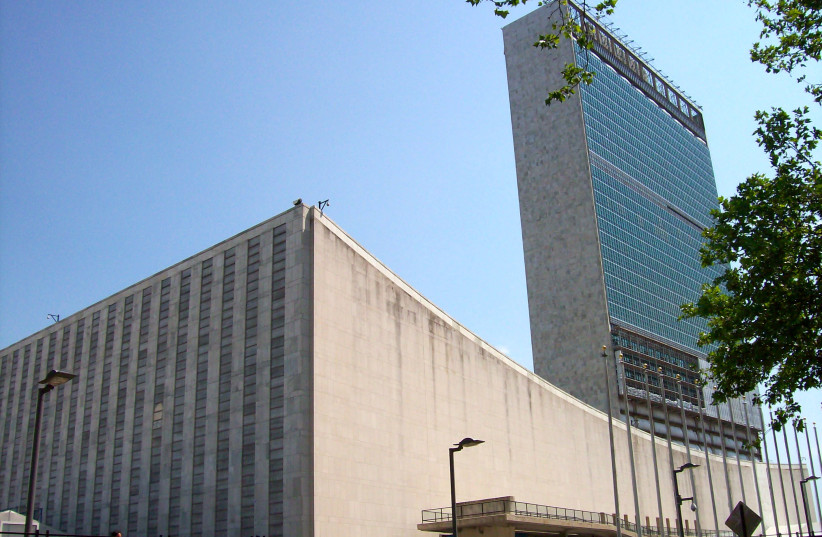The penchant for criticizing Israel, whatever it may or may not do appears to have become a permanent fixation to the point of being an unbreakable obsession or fetish.
Whether such criticism relates to Israel’s internal policies, or to governance of the territories, responses to terror attacks or whether it relates to situations with no apparent linkage to Israel, the obsessive necessity to find linkage to Israel inevitably emerges.
Such fixation is tailor-made to relate only to Israel. It does not occur with any other country. It singles-out Israel as the butt for criticism for any and every reason. It appears to be an ingrained component of the psyche of those who revel in it, and who seek out every opportunity to denigrate and delegitimize Israel.
No society or country is beyond rational criticism, Israel included. Israel’s society and media, and domestic politics, are fitting examples of its openness and critical introspection.
However, oddly as it may seem, as a member of the world community, Israel has never benefited from the equality to which every other state is entitled.
Since its establishment and acceptance into the United Nations as a member of the international community, Israel has been denied one of the basic principles guaranteed to all states as set out in the opening articles of the Charter of the United Nations – the principle of sovereign equality.

This discrimination, which continues to the present, takes the form of exclusion from UN regional groupings, preventing Israel’s right to submit its candidacy and candidates to main UN organs such as the Security Council or the International Court of Justice.
Since this has become an accepted norm of UN practice for over seventy years, it is no wonder that the fixation for singling-out Israel appears to be accepted internationally.
It is this that fuels the incessant fixation and obsession with Israel, including those political and media sources, domestic and international, entertaining a fixed agenda hostile to Israel’s existence and engaged in delegitimizing Israel in international fora.
Such a chorus of obsessed critics also includes progressive and liberal elements within Western Jewish and Gentile communities, smitten with a sad penchant for self-hatred and a concomitant need for ingratiating themselves within their societies, with Israel as their convenient target.
Another obvious source of automatic criticism has existed from time immemorial and has permeated international society – antisemitism.
A major thrust of the anti-Israel fixation emanates from Palestinian elements that seek to delegitimize Israel in the international community.
This is evident in the abuse and manipulation of respected international bodies such as the International Criminal Court, the UN Human Rights Council, and the UN educational and cultural agency UNESCO.
As is widely known, the establishment of the ICC was inspired by the horrors of the Holocaust and other recent instances of grave atrocities and crimes of concern to the international community, with the purpose of ensuring that perpetrators would be duly punished. Jewish and Israeli international lawyers were among those who envisioned and worked toward the creation of such a court.
The Palestinians have attempted to hijack this court and turn it into their own backyard Israel-bashing tribunal, abusing and undermining its founding statute.
Similarly with the hijacking and irreparable abuse of the UN’s Human Rights Council whose declared mission “to promote and protect human rights around the world.”
Even the ostensibly professional UNESCO organization established to promote “collaboration among the nations through education, science and culture in order to further universal respect for justice, for the rule of law and for the human rights and fundamental freedoms” has been similarly hijacked, preferring to vent an obsession with Israel through politically inspired resolutions denying the linkage of the Jewish people to its historic holy sites.
In the ongoing Russia-Ukraine war, Palestinians voice concern that the international community is overly immersed in the Russia-Ukraine war rather than pursuing Israel.
Their expressions of indignation seek to equate the low-intensity Israeli-Palestinian dispute with the high-intensity open warfare conducted by Russia against Ukraine, with its massive bombardment of civilians, use of illegal weaponry and millions of refugees.
This disproportionate attempt to invent a false equation is misplaced and malicious, indicative of the blindness caused by the obsession to criticize Israel.
Such obsession has also been voiced by a fringe US anti-Zionist organization Jewish Voice for Peace claiming that “The Israeli government is settling Jewish Ukrainian refugees on land it illegally occupies and prevents seven million Palestinian refugees from returning to...”
Similarly, American Jewish pro-Palestinian propagandist and apologist Peter Beinart, stated in the left-wing magazine Jewish Currents:
Ukrainians, a mostly white and Christian people battling an American foe, are viewed as fully human, and thus entitled to fight for their freedom. Palestinians, a mostly nonwhite and non-Christian people battling an American ally, are not.
Similarly malicious comparisons have been echoed by former Human Rights Watch director Sarah Leah Whitson, by the president of the Foundation for Middle East Peace, Lara Friedman, the president of the Arab American Institute in Washington James Zogby and British Labor MP Julie Elliott.
The attempts to equate the immensity and lethality of the Russia-Ukraine war with the Palestinian issue are false, misguided and presumptuous. They misrepresent the nature, history and complexities of Israeli-Palestinian dispute, and ignore and undermine the ongoing Middle-East peace process sponsored and supported by the international community.
The writer is director of the Institute for Contemporary Affairs at the Jerusalem Center for Public Affairs. He served as legal adviser to Israel’s Foreign Ministry and Israel’s ambassador to Canada.
